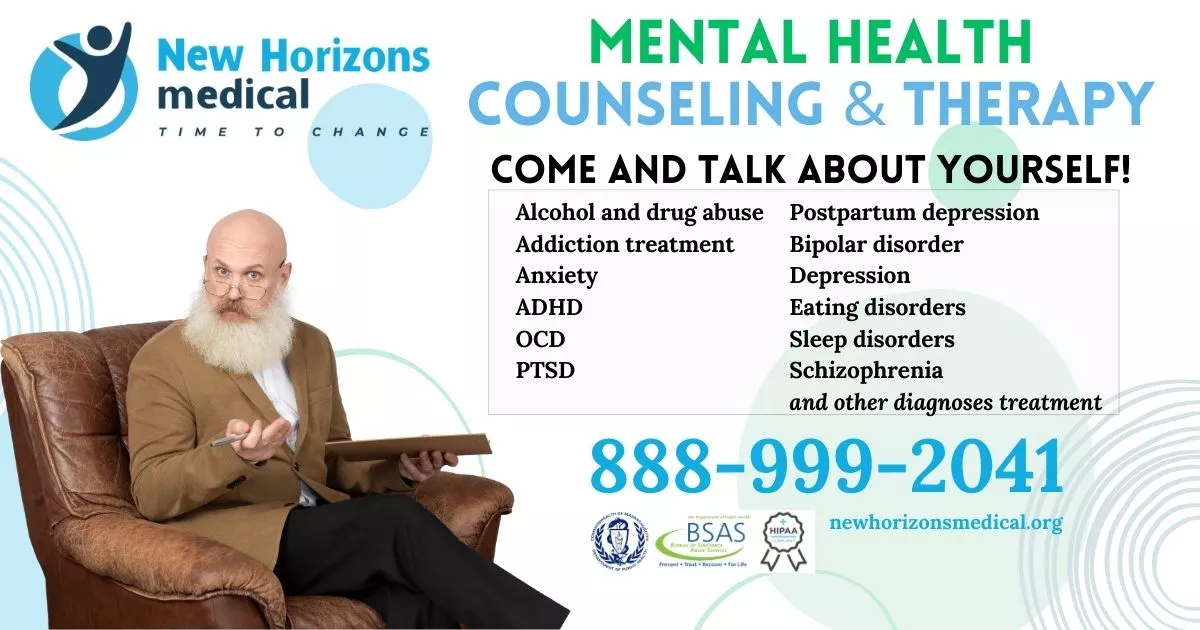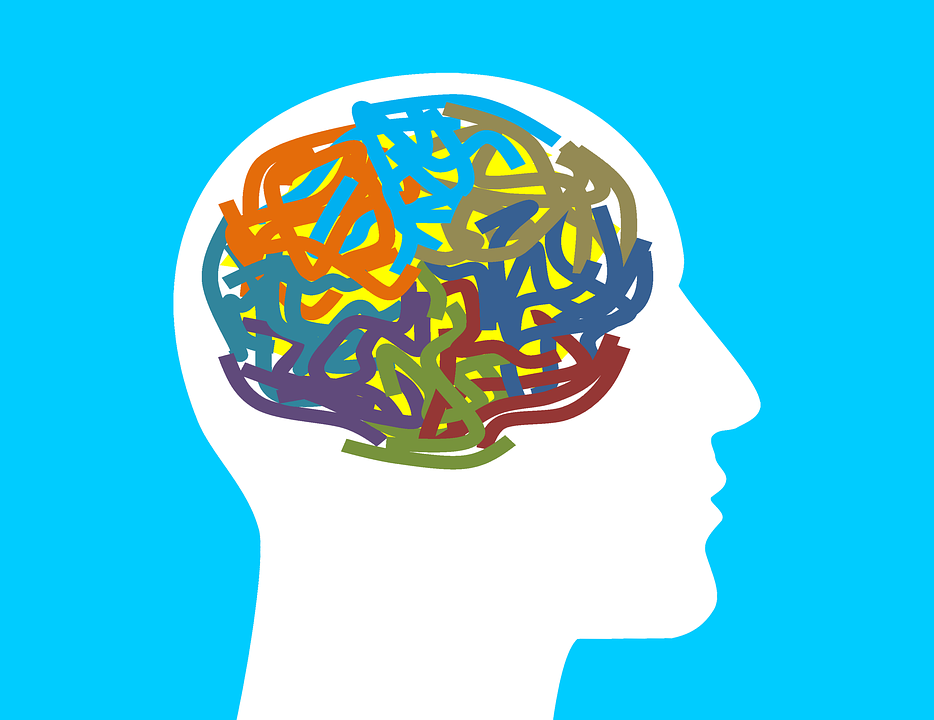Unlocking the Tricks of Mental Health: An Overview of Counseling and Treatment Alternatives
Psychological health is a complex and essential element of general health. Countless therapy and treatment choices exist to resolve various emotional obstacles. Each method offers unique benefits and approaches tailored to individual needs. Recognizing these alternatives is important for anybody seeking to improve their mental health. Couples Therapy. What factors should one take into consideration when discovering these avenues? The solution might disclose a path to a much healthier mood
Comprehending Mental Wellness and Its Relevance
Psychological health and wellness includes the emotional, mental, and social wellness of individuals, substantially affecting exactly how they believe, really feel, and act. Its value can not be overstated, as it influences every element of life, including partnerships, work efficiency, and overall high quality of life. People with excellent mental health and wellness tend to deal with stress more effectively, keep much healthier partnerships, and make informed choices. Alternatively, bad psychological wellness can lead to psychological distress, impaired performance, and various mental illness, which may call for specialist treatment. Comprehending psychological health is important for acknowledging the signs of distress and the need for support. Recognition additionally advertises empathy and lowers preconception, encouraging people to seek aid when needed. By prioritizing mental health and wellness, neighborhoods can promote settings that support psychological well-being, ultimately causing much healthier, extra resilient individuals. This structure functions as an important action towards reliable psychological health and wellness therapy and treatment choices.
Kinds of Therapy Techniques
Therapy approaches differ extensively, each customized to meet the distinct demands of people looking for support. Amongst one of the most usual types are cognitive-behavioral treatment (CBT), which concentrates on recognizing and transforming unfavorable thought patterns, and person-centered therapy, which stresses empathy and acceptance. Psychodynamic therapy checks out past experiences and subconscious processes to comprehend current actions, while solution-focused quick treatment aims to recognize services as opposed to investigate problems.Additionally, household treatment addresses relational dynamics and communication within households, promoting much healthier interactions. Team therapy offers a public area for individuals to share experiences and sustain each other. Various other strategies consist of existential therapy, which motivates individuals to find definition and purpose, and art or songs therapy, which uses creative expression as a healing tool. Each strategy provides distinct strategies and viewpoints, allowing clients to find one of the most appropriate method for their individual growth and recovery trips.
Discovering Different Therapy Techniques
In the domain of psychological wellness therapy, various treatment techniques offer unique techniques to treatment. Cognitive Behavior modification highlights the link between behaviors and thoughts, while Psychodynamic Therapy checks out subconscious impacts on psychological health. Additionally, Mindfulness-Based Techniques advertise present-moment understanding as a way to enhance psychological regulation and total psychological health.
Cognitive Behavior Modification
Cognitive Behavior Modification (CBT) stands out as one of one of the most extensively practiced and researched modalities in psychological health and wellness therapy. This approach focuses on the affiliation between sensations, thoughts, and habits, highlighting that modifying adverse thought patterns can result in improved emotional health and behavior changes. CBT is structured, normally including a limited variety of sessions, and aims to equip people with practical abilities to handle their symptoms. It works for a variety of conditions, including anxiousness problems, anxiety, and trauma. By utilizing strategies such as cognitive restructuring and exposure therapy, CBT fosters durability and encourages clients to face difficulties head-on, making it an important alternative in the landscape of psychological health treatments.
Psychodynamic Therapy Methods
Psychodynamic treatment techniques offer a deep exploration of the subconscious mind and its influence on habits and emotional health. Rooted in Freudian theory, these techniques highlight the significance of very early childhood experiences and subconscious problems. Via techniques such as free organization, desire analysis, and transference, people acquire insight right into their feelings and ideas, fostering self-awareness and understanding. This restorative modality motivates clients to reveal repressed emotions and unsolved problems, which can be essential in resolving present emotional challenges. By analyzing the interaction between present behaviors and previous experiences, psychodynamic treatment intends to promote emotional healing and personal development. Ultimately, it supplies a framework for people to check out complex internal characteristics that influence their psychological wellness.

Mindfulness-Based Strategies
While traditional therapies typically concentrate on past experiences, mindfulness-based techniques focus on present-moment understanding as a path to psychological health. These strategies, consisting of mindfulness-based cognitive treatment (MBCT) and mindfulness-based stress reduction (MBSR), motivate individuals to engage fully with their ideas and sensations without judgment. Practitioners learn to observe their frame of minds, cultivating a better understanding of psychological triggers and feedbacks. This technique not just relieves signs of anxiety and anxiety yet additionally enhances overall mental resilience. By integrating mindfulness workouts, such as reflection and deep breathing, clients grow a feeling of tranquility and clarity. Eventually, mindfulness-based methods equip individuals to browse life's difficulties with raised recognition and acceptance, promoting a much healthier partnership with their thoughts and emotions.
The Duty of a Specialist or Counselor
A knowledgeable specialist or counselor plays a vital role in sustaining people with their psychological health and wellness trips. They provide a secure, non-judgmental area where clients can express their ideas and feelings freely. Mental Health Resources. By utilizing different therapeutic techniques customized to each individual's demands, therapists aid clients discover underlying issues that might add to their mental wellness challenges.Therapists provide advice and tools to deal with anxiety, anxiousness, clinical depression, and other psychological difficulties. Their training equips them to acknowledge patterns in actions and believed procedures, promoting insights that lead to personal growth. They additionally cultivate a solid healing alliance, which is crucial for effective outcomes.Moreover, specialists stay committed to privacy and honest criteria, ensuring a trusting atmosphere. Inevitably, the role of a therapist or therapist is to empower individuals, motivating them to create strength and healthier coping strategies while guiding through life's complexities
Just how to Pick the Right Therapy or Therapy Option
Selecting the appropriate counseling or treatment option begins with reviewing specific demands. It is important to recognize individual challenges and objectives prior to exploring various treatment designs. This fundamental action can considerably affect the efficiency of the selected method.
Analyze Your Demands

Exactly how can people effectively analyze their mental wellness requires when assessing therapy or treatment choices? They need to reflect on their psychological state and identify specific issues, such as depression, partnership, or anxiety difficulties. Journaling can be a useful device for tracking thoughts and sensations over time. Furthermore, people might gain from looking for feedback from trusted close friends or member of the family pertaining see post to perceived modifications in habits find this or state of mind. It is likewise valuable to examine individual objectives for treatment, such as boosting coping abilities or gaining insight into personal patterns. Investigating various counseling methods and their suitability for particular needs can aid in making an enlightened choice. Eventually, self-awareness plays a pivotal function in picking the right course for psychological health and wellness support.
Discover Treatment Designs
While traversing the varied landscape of therapy alternatives, individuals need to think about different designs of counseling to discover the finest fit for their one-of-a-kind requirements. Cognitive Behavioral Treatment (CBT) concentrates on transforming negative idea patterns, while Psychodynamic Treatment checks out previous experiences and subconscious procedures. Humanistic methods highlight individual growth and self-actualization, fostering a helpful setting. In addition, mindfulness-based treatments cultivate present-moment understanding, aiding psychological guideline. For those seeking framework, Solution-Focused Quick Therapy targets certain goals and services. Team treatment supplies a communal setting for common experiences and assistance. Ultimately, individuals ought to mirror on their preferences, comfort degrees, and specific obstacles, ensuring they choose a restorative design that reverberates with their individual journey towards psychological health.
Conquering Obstacles to Seeking Assistance

The Advantages of Therapy and Therapy for Mental Wellness
Looking for help for psychological health difficulties can bring about substantial renovations in general health. Therapy and therapy give people with a safe space to explore their thoughts and sensations, fostering self-awareness and personal growth. These professional services equip customers with dealing strategies check out this site and analytical abilities customized to their special situations.Moreover, treatment can decrease signs and symptoms of anxiety, depression, and other mental wellness conditions, improving emotional strength. Normal sessions advertise responsibility and encourage people to set and attain individual goals. Through numerous restorative methods, such as cognitive-behavioral treatment or mindfulness methods, customers learn to reframe negative thoughts and establish healthier behaviors.Additionally, the healing connection itself can be a source of support, helping to deal with isolation and loneliness. In general, participating in counseling and treatment is a proactive action toward accomplishing mental health, enabling individuals to lead more satisfying lives.
Often Asked Inquiries
Exactly How Long Does Therapy or Therapy Usually Last?
The duration of therapy or treatment varies considerably, often lasting from a couple of sessions to a number of months or years. Factors affecting this consist of the individual's certain requirements, the sort of therapy, and healing goals.
What Should I Anticipate During My Initial Session?
During the initial session, people can expect an introduction, conversation of worries, and the therapist's strategy. They may complete assessments and develop goals, cultivating a risk-free atmosphere for open interaction and building connection.
:max_bytes(150000):strip_icc()/GettyImages-554392669-56a6c32d3df78cf7728feb74.jpg)
Are There Any Type Of Threats Related To Treatment?
Therapy can involve threats, such as psychological pain, susceptability, or confronting painful memories. While these obstacles might occur, they can also lead to individual growth and recovery, making the restorative process facility yet possibly gratifying.
How Can I Inform if My Therapist Is a Great Fit?
Establishing if a therapist is a great fit includes examining comfort, interaction design, and therapeutic strategy. Favorable connection and progress in the direction of goals are indications of an ideal match, important for reliable mental wellness support.
Will My Insurance Coverage Cover Therapy or Treatment Sessions?
Figuring out insurance coverage for therapy or therapy sessions usually requires speaking to the insurance company directly. Policies differ significantly, so people must verify benefits, co-pays, and any kind of essential pre-approvals before pursuing treatment solutions. Among the most usual types are cognitive-behavioral treatment (CBT), which concentrates on identifying and altering negative thought patterns, and person-centered therapy, which highlights compassion and approval. Psychodynamic therapy discovers unconscious processes and past experiences to comprehend current habits, while solution-focused short treatment aims to recognize solutions instead than explore problems.Additionally, family treatment addresses relational dynamics and communication within families, fostering much healthier interactions. Other methods include existential therapy, which urges individuals to find meaning and purpose, and art or music treatment, which uses imaginative expression as a restorative device. Cognitive Behavioral Treatment stresses the connection in between habits and ideas, while Psychodynamic Therapy checks out subconscious impacts on psychological health. Cognitive Behavioral Treatment (CBT) concentrates on transforming adverse thought patterns, while Psychodynamic Treatment discovers previous experiences and subconscious procedures.